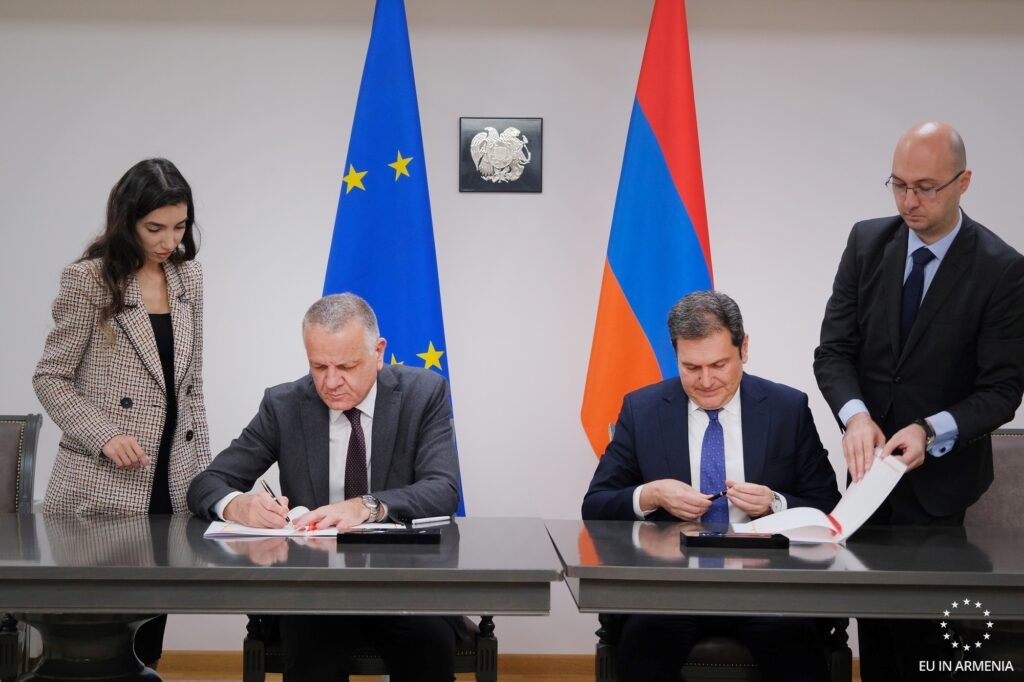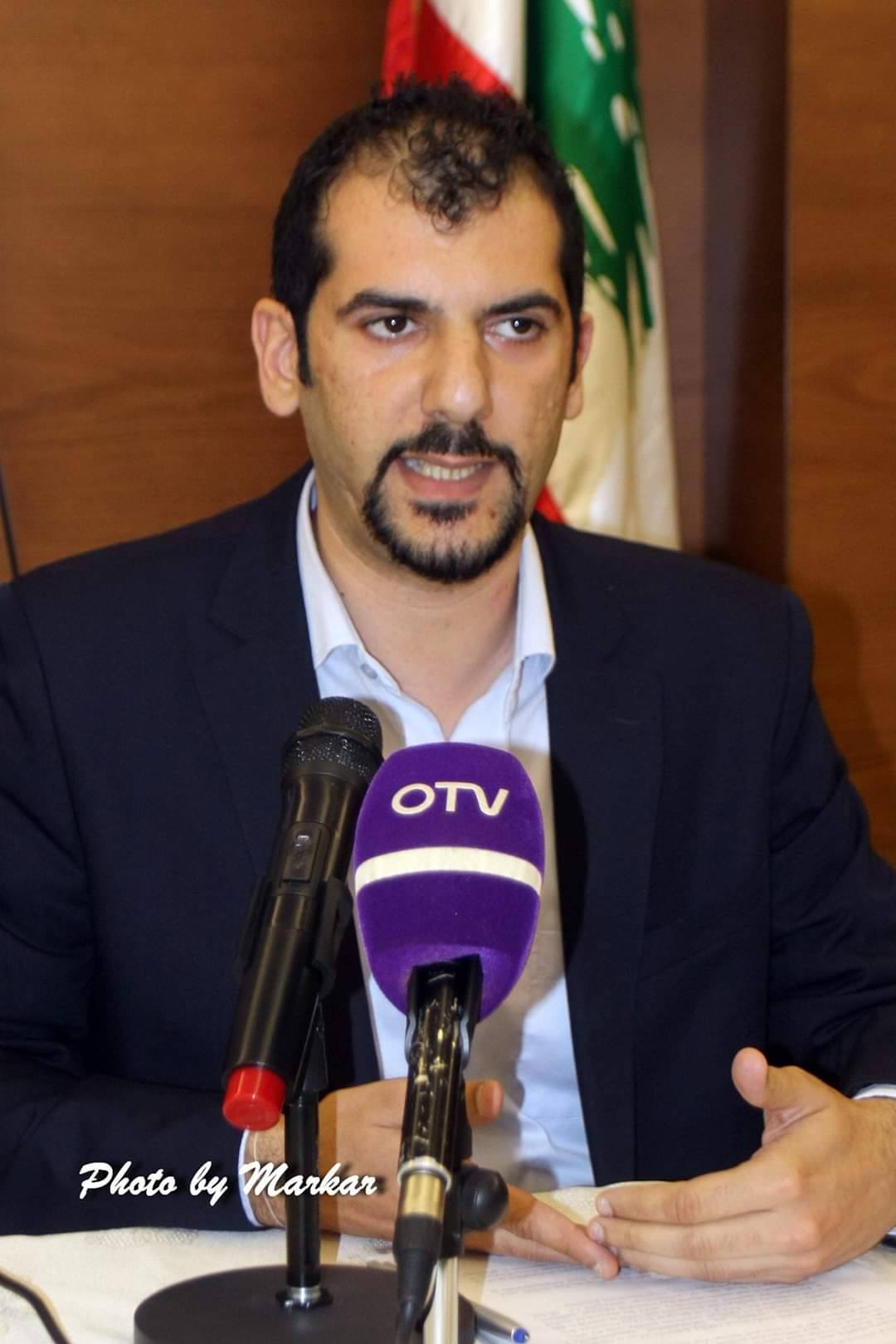
From November 27-29, 2023, a delegation of the European External Action Service (EEAS) and the European Commission visited Yerevan. The EU Delegation to Armenia said the purpose of the trip was to “explore possibilities to deepen and strengthen EU-Armenia relations.” Ideas were exchanged on “how to best leverage investments to address the immediate needs and enable integration of displaced Karabakh Armenians.” They agreed to “explore areas to strengthen cooperation between the EU’s Border and Coast Guard Agency (Frontex) and Armenia” and continue dialogue on matters of security and defense, such as the EU’s promise to explore non-lethal support to the Armenian military via the European Peace Facility. The EU representatives announced their support for the “normalization of relations between Armenia and Azerbaijan based on the principles of mutual recognition of territorial integrity and inviolability of borders based on the 1991 Almaty Declaration.”
Despite the outreach of the EU to Yerevan, it is still unclear whether the EU has a clear and unified strategy or vision for the future of the South Caucasus. Do the three states in the region have any future in the EU? Is the EU aiming to replace Russia in the region? Do the Europeans have an agenda when it comes to the Armenia-Azerbaijan peace agreement? These are important questions that need to be addressed when assessing the EU’s political and economic role in the region. Despite Russia’s efforts to sideline the West following the November 10, 2020 trilateral ceasefire statement, Azerbaijani incursions in Armenia and Russia’s inability to address Armenia’s security needs pushed the latter to seek the help of new partners. It is within this context that the EU deployed a monitoring mission on the Armenia-Azerbaijan border after the September 2022 escalation, thus becoming a peace facilitator in the Armenia-Azerbaijan conflict and a proactive player in the region. European think tanks started addressing some of these questions and proposing certain recommendations. In this article, I will highlight two important publications and summarize their recommendations related to Armenia and the region.
Objectives the EU should pursue in the South Caucasus
In March 2023, the Netherlands Institute for International Relations published a report titled, “The EU in the South Caucasus: Navigating a geopolitical labyrinth in turmoil.” The report argued that the EU should “develop and implement a more holistic strategic vision, both for the region and for its relations with the individual countries.” To fulfill this strategic vision, the report proposes that the EU adopt four parallel objectives that it should pursue in the South Caucasus: (1) exporting European values on good governance, democracy and human rights; (2) promoting regional stability and security; (3) expanding security, energy and trade interests; and (4) containing or even pushing back Russian influence.
The report mentions that certain obstacles may arise in fulfilling these objectives. First, Moscow, although its “credibility as a security provider and its popularity in Armenia have shriveled,” tries to push the EU and the West out of any peace settlement process. Second, the issue of the establishment of a transport connection between Azerbaijan and its exclave Nakhichevan raises security concerns for Armenia, as Baku demands an extraterritorial corridor. A third obstacle is the demarcation and delimitation of the Armenian-Azerbaijani border and the withdrawal of Azerbaijani troops from Armenia’s sovereign territory. Finally, there is the issue of the rights and the future of the Armenians of Artsakh, which is no longer a priority for Yerevan, Moscow and the West after Azerbaijan engaged in a military operation that forced the Artsakh leadership to capitulate and the population to flee to Armenia, fearing massacre.
On the geopolitical role of the EU, the report mentions several recommendations:
- The EU should have a clear focus on the security dimension as well as the (geo)political, economic and normative dimensions of the region and strengthen its presence in the three countries.
- The EU should continue to “invest in both the construction and security of transport and energy connection.” Within this context, the “Middle Corridor” is mentioned as an important transit route connecting the Caspian Sea via Azerbaijani and Georgia to Turkey and Europe, increasing trade between China, Central Asia and Europe. Certain concerns were raised that Russia would engage in sabotage activities against this route.
- The EU should avoid “both-sideism,” deter Azerbaijani efforts to impose a peace treaty on Armenia under military pressure and demand the withdrawal of Azerbaijani troops from Armenian territory.
- The EU should ensure that “Armenia duly implements the commitments it has undertaken regarding the transport connection from Azerbaijan proper to Nakhichevan.” The report mentions that the EU has an interest in its realization, not only because it unlocks the communication transport channels between Yerevan and Baku, but also because it would strengthen the Middle Corridor trade and lead to a normalization process between Ankara and Yerevan, thus opening their shared border.
- The EU Mission in Armenia (EUMA) should be “endowed with sufficient resources and flexibility to fulfill its mandate.” The EU should make clear to Baku that the EUMA is an essential part of the peace process and encourage Baku to not only accept but also cooperate with the Mission, ideally “by allowing it to have access to the Azerbaijani side of the border.”
- When it comes to Artsakh, the paper recommended that the EU should press Baku to offer a credible and internationally monitored arrangement to the Armenians of the region, aiming to guarantee their rights and security within the context of “minority rights.” (The paper was published months before the September 2023 escalation and depopulation of the Armenians of Artsakh.)
- Finally, the report recommends that the EU should make a long-term investment in Armenia and engage in structural reforms to strengthen its democratic institutions and resilience. The report recognizes that in the short-term, Yerevan’s political and economic dependence will not decrease, and the EU must “manage Armenian expectations in this regard,” but it “can and should play a long game here (in the region).”
Three ways the EU can strengthen Armenia’s resilience
In November 2023, the European Council on Foreign Relations published “After Nagorno-Karabakh: How Europeans can strengthen Armenia’s resilience.” Marie Dumoulin and Gustav Gressel argue that even though Azerbaijan has captured Artsakh, security concerns in the South Caucasus are far from over, as Azerbaijan continues to push irredentist claims over Armenia. The authors say that the establishment of a land corridor through Armenia’s Syunik province, whether under the control of Russia or Azerbaijan, poses significant risks for Europe, as Ankara and Baku, with the support of Moscow, would control all the transit routes connecting Europe to Central Asia and China. To mitigate this threat, they suggest three ways that the EU can strengthen Armenia’s resilience.
The first suggestion is that the EU should prevent further military escalations between Armenia and Azerbaijan. For this purpose, the EU should engage in high-level political engagement with Yerevan to show that it cares about Armenia. At the same time, it should engage with Ankara and Baku to minimize tensions and warn the Azerbaijani government that any possible attack would have consequences. To consolidate its active role in the region, the EUMA should extend its mandate and be equipped with the tools to better detect ceasefire violations. The authors welcomed the decision of the EU Foreign Affairs Council in November 2023 to increase the number of monitors.
The second suggestion is to strengthen Armenia’s defense capabilities. The authors suggest that the EU should be open to using the European Peace Facility (an off-budget instrument to enhance the EU’s ability to prevent conflicts and build peace and security) to equip the Armenian army. It is important to engage with Georgia to facilitate the arms flow to Armenia. EU member states can also assist Yerevan in engaging in military reforms in the sectors of military logistics, training and education. Finally, engagement in strategic consultation with India and other partners is important to provide heavy arms to Armenia so that the latter can withstand future Azerbaijani attacks.
Finally, the EU must support a peace settlement between Armenia and Azerbaijan. The authors argue that since Artsakh is no longer a part of the negotiations, “mediation should aim for an agreement on the delimitation and opening of borders,” including the Armenia-Turkey border. Regarding a transit route connecting Azerbaijan and Nakhichevan, the report concludes that as part of the future peace plan, the EU should offer investment opportunities and technical support to facilitate transit and connectivity. The authors say that the issue of Artsakh is “lost but suggest that the EU provide humanitarian aid to the Armenian refugees and help their “integration” into the Armenian society, to “ensure future domestic political stability in the medium and long term,” thus closing the issue of the right of return of Armenians of Artsakh.
Importantly, the article says that the EU needs to convince the “Armenians not to have too many expectations, and Europe must refrain from making unachievable promises,” adding that the EU cannot “make Iran, Russia, Turkey and Azerbaijan go away—nor will it completely replace them.” Yet the EU can support Armenia to balance its interests without making painful compromises and prevent it from being fully dependent on a single regional power.
To sum up, the recent publications and academic debates show that the EU is an active player in the South Caucasus. While the EU aims to minimize Russia’s influence in the region, the EU will not be able to replace Russia in the near future by exercising soft power (such as economic incentives or mediation), as long as it does not deploy leverage to push Baku to sign a peace treaty with Yerevan. For the EU, the issue of Artsakh, which was seen as one of the main obstacles to signing a peace treaty, is resolved. Following the loss of Artsakh, the EU is pressuring Baku to fulfill its obligations and accept the EU’s role in the region as a key mediating player. The question is to what extent the EU’s strategy will work, amid the exclusion of other key regional actors such as Turkey and Iran. The geography and cultures of the South Caucasus are unique compared to other conflicts in Europe’s neighborhood, such as in Eastern Europe. Policymakers must be aware that the South Caucasus is bordered by Iran, Turkey and Russia, and extra-regional actors such as China and India also have a share in this competition and in shaping the regional dynamics. Hence, for a stable and secure region, any peace process must be holistic, realistic and proportionally acceptable to the key actors.



The answer to that question is obvious: No. The EU is a joke, a paper tiger, just like the UN, which cannot be taken seriously.